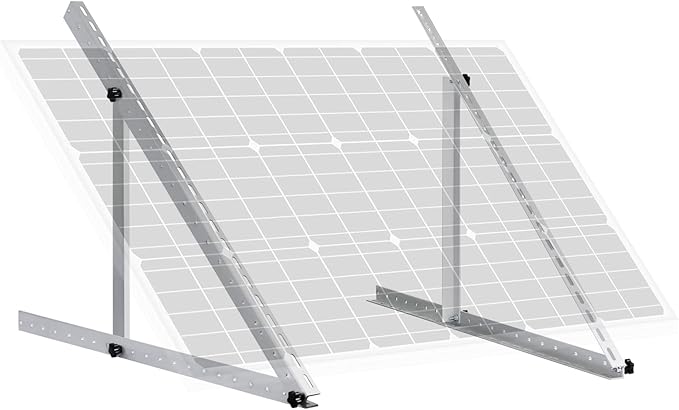Solar Panel Angles for Indianapolis, Indiana, US
Indianapolis, Indiana is located at a latitude of 39.78°. Here is the most efficient tilt for photovoltaic panels in Indianapolis:
Orientation
Your photovoltaic panels need to be angled facing south.
Fixed tilt
If you're mounting the photovoltaic panels at a stationary angle, such as on your roof, the most efficient angle is 33.3°.
2-Season tilt
If you're planning to change the angle of your photovoltaic panels twice per year, the most efficient angle is 16° in summer months and 54° in winter months.
4-Season tilt
When changing the angle of your photovoltaic panels each season, the most efficient angle is 12.3° in summer months and 59.4° in winter months, and 36.7° in autumn and spring months.
What Zip Codes does this cover?
46234, 46218, 46219, 46217, 46214, 46260, 46268, 46226, 46225, 46228, 46183, 46231, 46235, 46236, 46237, 46239, 46250, 46208, 46201, 46203, 46202, 46205, 46204, 46256, 46254, 46259, 46227, 46224, 46222, 46221, 46220, 46229, 46113, 46278, 46241, 46240, 46206, 46207, 46209, 46230, 46242, 46244, 46247, 46251, 46253, 46255, 46262, 46277, 46282, 46283, 46285, 46288, 46298
What products should I use to setup my solar power installation?
How do I determine the best tilt for my solar panels?
The optimal angle for your solar panels will depend on your latitude. At the equator, the sun is almost directly overhead, so solar panels should be installed at a relatively shallow angle, around 10-15 degrees. As you move further away from the equator, the sun's angle becomes more oblique, so solar panels should be installed at a steeper angle to capture more direct sunlight. This will allow them to capture the most sunlight possible and generate the most electricity.
What factors should you consider when shopping for solar panels?
There are several factors to consider when selecting the best rooftop solar panels for your home:
Efficiency: Solar panels are rated by their efficiency, which is a measure of how much of the sun's energy they can convert into electricity. Higher efficiency panels will produce more electricity and may be a better choice if you have limited space on your roof.
Type of panel: There are two main types of solar panels: monocrystalline and polycrystalline. Monocrystalline panels are made from a single, continuous crystal of silicon and are generally more efficient and more expensive. Polycrystalline panels are made from many smaller crystals of silicon and are less efficient but also less expensive.
Size and weight: Make sure the solar panels you choose will fit on your roof and that your roof is able to support their weight.
Brand and warranty: Consider the reputation of the manufacturer and the terms of their warranty. A good warranty can provide peace of mind and protection against any potential defects or problems with the panels.
Cost: The cost of solar panels can vary significantly. Look for panels that offer the best value for your money, taking into account their efficiency, size, and warranty.
